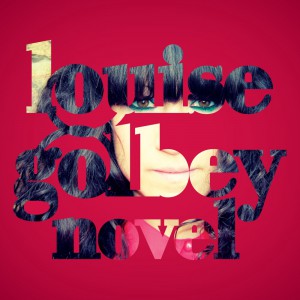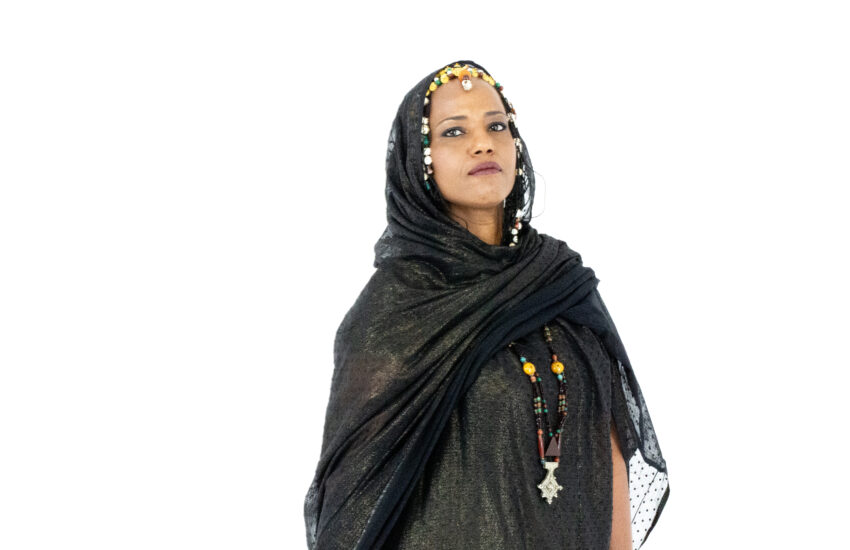Miss Resilience: An Interview with Louise Golbey

Louise Golbey is a woman on a mission. She needs to find somewhere to charge her phone. Having arranged to meet at London’s Southbank Centre, I’ve been held up at a work function and she hasn’t yet received my apologetic text. We fortuitously bump into one another near Nelson Mandela’s statue on this glorious July evening and immediately start the quest for a spare plug. The baristas in the surrounding establishments are not in a charitable mood. Time is ticking away and we both have post-interview appointments. We try one last bar. Jackpot. Whilst the helpful waiter goes off to fetch a plug, Louise regales me with a timely anecdote. Earlier that day she has a conversation with her boyfriend in which he teasingly asks if she still doesn’t consider herself a Jazz singer. It’s an affectionate reference to our 2010 Soulculture interview . ‘How strange!’ she tells him ‘I have another interview with the same lady tonight’.
There is a sense of coming full circle. Golbey has assiduously kept me up to speed with her artistic coming-and-goings via her mailing list but after six years, it’s time for an ex-post catch-up.
One thing that has always been apparent is Louise’s hard graft. She is still a self-managing, independent artist also holding down a part-time job. Nevertheless, years on the grind have been rewarded with some prestigious performing opportunities. In addition to television and radio features, Golbey has played the Isle of Wight festival as part of an unsigned competition. She has supported legends of Soul and Jazz such as Loose Ends at the Islington Assembly Hall, The Stylistics on their UK tour, Roberta Flack at the Indigo O2 and George Benson at Kenwood House – her biggest audience to date.
By far one of her proudest moments was supporting 90s R&B icons En Vogue this spring, also at the Indigo O2. In her typically warm and cheery fashion, Louise recounts how her solid reputation on the live scene landed her the gig.
‘It was through a promoter that’s booked me before. I’ve done a few support slots for him. I hadn’t seen him for a couple of years, [then] got an email completely out of the blue. “Hey Louise, how are you? Would you like to support En Vogue in two weeks’ time?” “Of course I want to support En Vogue!”’
Louise’s achievements are particularly impressive given that, despite being something of an underground veteran, she still does not have any formal record company backing or the support of a management team.
‘I am looking for a manager but hey, I’m not going to wait around.’
Is this because she is reluctant to yield control over her career? It’s more complicated, she explains.
‘I do [manage myself] as in I have done it and I do like being in control but I know that I can only do so much without a manager. It’s the managers who put you in touch with the labels; that team you up with the producers who are about to blow. Obviously I’m proud of everything I’ve done because I’ve done it by myself but…’
Another recent milestone is the release of Louise’s debut album ‘Novel’, a mix of re-mastered older tracks as well as newer material. It features some illustrious names, such as bassist and keyboardist Mo Pleasure (who was due to play on MJ’s ill-fated ‘This Is It’ tour) and yet another Soul Legend, the UK’s very own Omar. More on him later.
The advent of a Louise Golbey album comes as a surprise. When we last met she was content to release shorter projects, believing that the album was a medium in decline. What’s changed?
‘I just thought I’ve got a lot of material and it would be really nice to do an album. I wanted it to reach out to more people. Although some of those songs have been heard before, there’s a whole load of people that have never heard my stuff. I called it ‘Novel’ because I wanted it to be my collection of works. My story.’
So it’s not ‘novel’ as in the novelty of there being a full-length Louise Golbey album?
‘Well it could be anything. I think that’s why I chose it; it had the double meaning.’
Ironically Louise maintains – as she did six years ago – that the album is a fading format, at least as far as her personal listening is concerned.
‘I don’t know when the last time I sat and listened to an album was… that’s a lie. When I was on a train journey the other day I listened to a couple of albums. But in day to day life, I don’t really.’
What about in transit?
‘I don’t think I’m on a journey that’s long enough to listen to a whole album…’ Perhaps realising she’s downplaying too much a medium that she’s only recently embraced herself, she playfully interjects: ‘But the Louise Golbey album is great when you’re travelling.’
Back to working with Omar. Louise previously indicated that he was on her list of fantasy collaborations. How did dream become reality?
‘I’d done a couple of gigs with him’ she explains. ‘Obviously I knew of his work and that he also produced and wrote with other artists as well as doing his own stuff. I bumped into him somewhere and he said “Well, yeah I’d love to work with you”.’
‘When I did the ‘Up to Me’ video he messaged me and said “I really love what you’re doing. I will work with you. I’m just really busy at the moment. My manager will be in touch”. Finally he had some free time and we booked in a session.’
Golbey came prepared. She had a rough demo and most of the song idea complete. Omar suggested some chords for the middle eight and used his production nous to add the finishing touches. The result is ‘The Outsider’; one of Golbey’s most lyrically mature records to date, replete with intriguing paradoxes and double-meaning. This could be reflective of its diverse inspiration, both on a personal and broader artistic level.
‘It is basically about being a certain age and not following the norm. I have quite a lot of friends who’ve settled down and married with kids and are buying houses… I’m career-focused more than anything so I’m essentially asking “but is it bad?”. That idea of “Well, hang on, should I be buying a house right now? Should I be having a kid?”’
Is she questioning her life choices or simply being defiant?
‘I don’t know’ she ponders ‘It’s a bit of both really.’
| The song also has an added cultural cachet thanks to Louise’ knowledge of classic modern Francophone literature. She’s needlessly apologetic about it. |
‘This sounds a bit pretentious but the reason I called it ‘The Outsider’ is because I studied ‘L’étranger’ by Albert Camus at Uni. It’s all that existentialism and not belonging. ‘L’étranger’ basically means ‘The Outsider’ which is why [I use] words like ‘detached’ in the lyrics. I know that really sounds pretentious…’
How did Omar fit into all of this? It’s clearly a personal song.
‘Absolutely and I think that’s why it’s not a duet. He’s singing on it obviously [but] it’s not a love song.’
I ask Louise if she was starstruck working with one of her musical idols.
‘I was. When I went to his studio there were all these newspaper articles and memorabilia on the wall and it’s like “Flipping heck, It’s Omar!”’
Was the pressure of being around him creatively inhibiting?
‘No but I tell you what, when you play anyone a song idea, especially Omar… You don’t know a song is good until someone else hears it. I mean you kind of have an idea. The more you write, the more you think this has got something but then I was so scared because I was like “Crap! I’ve got this one session…” I’m going there, I’m just playing him a little idea I’ve come up with and hope that he likes it. It’s quite nerve-racking.’
At least she had that affirmation that he’s familiar with and appreciates her creative output.
‘Yeah exactly. I like to think he doesn’t just work with anyone so I hope that he did it because he likes my stuff. He wouldn’t want to be associated with it if he didn’t think it was good, would he? Or be in the video.’
Indeed, Omar also makes an appearance in ‘The Outsider’ promo. Directed by Shernay Latouche, it’s a rather strange affair involving red tutus, marching choreography and masked suits.
Why on earth the tutu? Admittedly it’s a brave, if bizarrely tenuous, move…
‘I know it’s ridiculous. I ordered it online and I was like “‘Oh, it’s really small!”’ she laughs.
Expounding on the video’s concept, Louise wanted to extend the surreal and existential themes of Camus’ celebrated novel and other French cultural references.
‘It’s got a lot of flutes and a marching band sort of thing and because of the instrumentation and the style, I had this image of something really fantastical – almost like ‘Amelie’. But then I thought “What if I was a jewellery box ballerina?” which is why I made that really awful looking key for my back. It was a little bit Blue Peter.’
‘With the guys, because it’s called ‘The Outsider’, I wanted everyone looking the same which is why they’re all dressed as businessmen. I don’t know. It’s a bit obscure but I wanted it to be quite abstract. It was a ‘Clockwork Orange’ kind of thing, the way they looked; just a little bit out there.’
Returning to the personal nature of Louise’s song themes, she seems to take the heart-on-your-sleeve approach to composing. Whilst some artists feel that’s the only way to write, others claim it can be self-indulgent or they simply don’t wish to make a song too personal so that listeners can derive any meaning from it. I ask Louise on which part of the songwriting spectrum she’d place herself.
‘There are a couple of songs that I’ve written that weren’t about how I was feeling like ‘Sparkle’; I wasn’t with someone [at the time]. I’m not that precious about those lyrics but others tell me “Oh no that song, it really speaks to me” and I’m like “Really? …I think it’s a little bit cheesy” but hey, who knows?’
‘But if I’m writing a song about a particular person I try to make it as subtle as possible…’
She’s not one for the Taylor Swift name-and-shame game, then.
‘I’m not a Swifty, no. Although all my songs are about Katy Perry, let’s face it. I write about things I know and how I’m feeling’.
Within that rubric of authenticity, Louise endeavours to challenge herself thematically from time to time. A good example would be ‘Family Tree‘, dedicated to her grandmother.
‘It’s hard to write things that aren’t just about love or emotion or whatever. I’m not clever enough to write a political song or a preachy song. I wouldn’t want to do that, so it’s finding subject matter you haven’t written about but you can talk about. My grandma is an amazing woman.
‘Hopefully ‘Family Tree’ is personal but also speaks to people. This is why, for the video, I asked others to send me photos of their grandparents so it’s not just my grandmother. Weirdly after I wrote it, one of my mum’s distant cousins got in touch with her because he’s doing a family tree. She said “That’s so weird. Louise has just written a song called Family Tree” and she got all excited.’
Louise’ artistry has grown over the years. Her distinctive vocals are richer and her songwriting is becoming more confident. She has shared the stage with the likes of the Eurythmics’ Dave Stewart and played the circuit alongside now very well-known contemporaries such as Ed Sheeran and Lianne La Havas. She works relentlessly and yet her professional profile is not commensurate to her efforts. I ask if she has any theories as to why certain artists remain under the radar. Is it a question of playing the game?
‘Well if I knew the answer…’ she shrugs, ‘I could completely change my sound and try whatever’s big at the time but that doesn’t mean you’d make it. You could still do it wrong and miss the timing. A lot of it is to do with timing. This is another reason I need a manager.’
For Louise, there are creative as well as practical reasons at play.
‘I wanted to stay true to the music I like to make. I’m working on new material at the moment and I am working with different producers and trying to be a bit more edgy and contemporary with the sound. But I don’t want to not do the music that I do. Hopefully, my voice is distinctive enough and I’ve got a style so that it would still sound like a Louise Golbey record but with a slightly more contemporary edge.’
So-called crossover success isn’t the be all and end all to having a viable career. Besides, there are different sorts of fame, I posit. Just take Little Dragon, or Hiatus Kaiyote for instance.
‘Or maybe they’re bigger in other countries?’ counters Louise. ‘That’s the thing. I do gigs in Hamburg quite a bit and when you go out of the UK you realise there’s a whole other world and market and people who like your stuff. I’m so UK, London-centric and I don’t think that helps because here, they don’t take any risks. The labels are only interested in an act if another label is interested and there’s a buzz around them. I’m in the wrong country! Maybe if I moved to Germany…’
Bavarian relocation notwithstanding, Louise has a busy summer ahead including her last London gig of the season and being part of the line-up for the BBC’s Children in Need CarFest festival. As well as working on some new material of her own, she’s soon to feature on a release by House producer, Optrix.
For now there are no plans for extensive tours, whether solo or as a support act.
‘When you’re unsigned and unmanaged, unless you get funding, there’s no way you could afford touring.’
One can only admire Golbey’s determination and work ethic. Buoyed by the love of her craft and in defiance of the travails of the self-funding independent artist, her resilience continues to win the day.
This article first appeared on the ‘I Was Just Thinking…’ blog.



